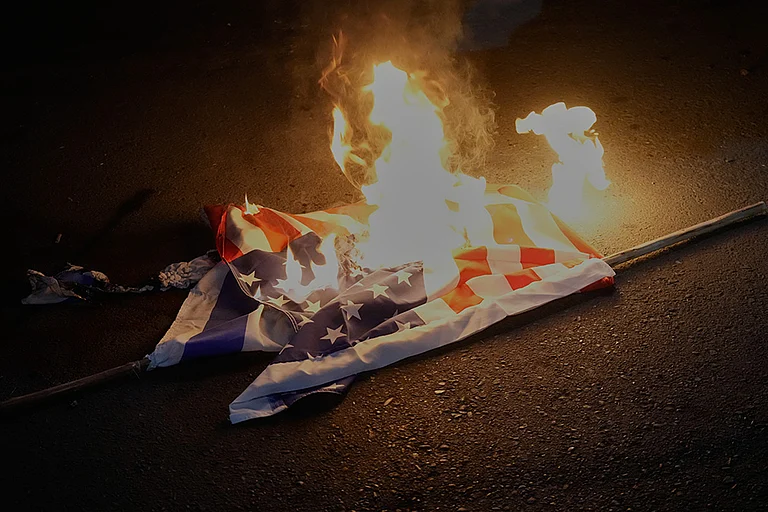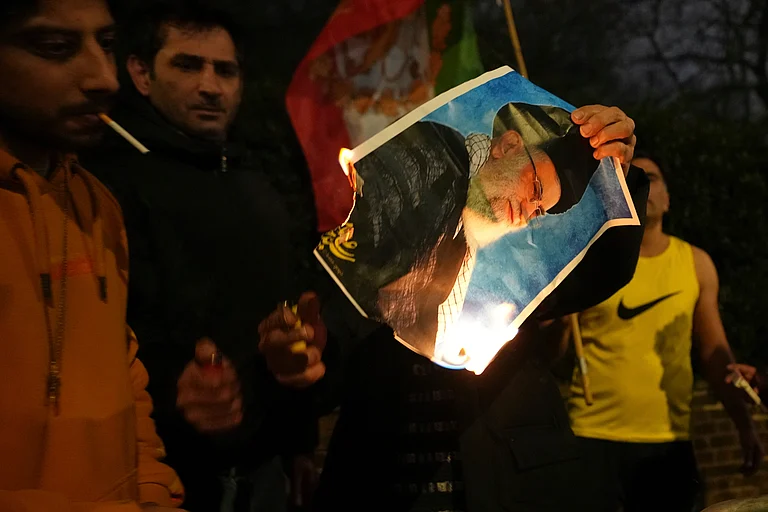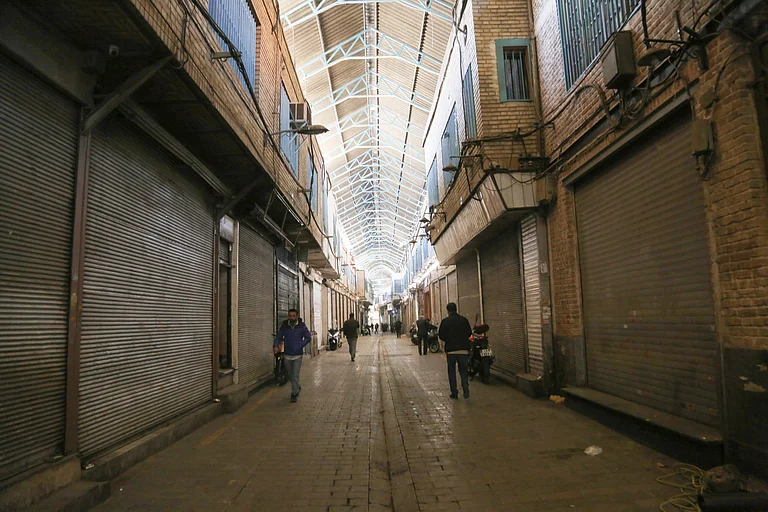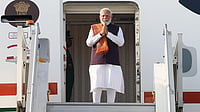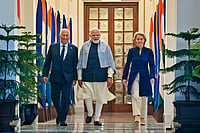Israel’s attack on Iran last weekend was long awaited and was expected to be a devastating blow that could lead to a quick Iranian retaliation and perhaps a third war in the region.
However, Saturday’s strikes were calibrated to be more symbolic of Israeli power rather than be destructive. It reportedly did not cause massive destruction, and Iran has downplayed the incident though it admitted that four army officers lost their lives. The details of the damage caused are not yet clear.
The question now is whether Iran will retaliate to the tit-for-tat attack. Or are both sides holding their fire power for a deadlier all-out war? No one is certain what is on Supreme Leader Ayatollah Ali Khamenei’s mind, and the next chapter in the Israel-Iran confrontation remains a guessing game.
The message from Israel's latest attack was simple: we can strike at will and with impunity. It was a show of strength to signal that it was capable of striking at any target it chose inside Iran, while holding back from an all-out attack.
The strikes were across Iran and conducted by multiple aircraft coming in waves. Iran’s famed air defence system was not in a position to counter the deadly strikes. According to leaks from the Biden administration reported by US media, the US was able to persuade Prime Minister Benjamin Netanyahu not to escalate the already volatile situation by starting a war with Iran ahead of the US elections. Significantly, Israel did not attack either Iran’s nuclear facility or its oil infrastructure. Even more importantly, Israel announced that this was in reply to Iran’s October 1 attack and that the matter was now closed, placing the ball directly in Iran’s court.
Though Tehran had repeatedly warned Israel that it would strike harder and with more force a third time, Khamenei’s reaction after the Israeli strikes was measured, saying it should not be "exaggerated or downplayed". Iran's President Pezeshkian said: "We do not seek war, but we will defend the rights of our nation and country."
Iranian leaders know the score. Iran can take on Israel, one-on-one, even after four decades of sanctions. But taking on Israel together with the US is another matter. If Russia was not bogged down by its own war in Ukraine, Iran could have banked on Russia’s unqualified support, including sending out army contingents. It was Russia that came to Syrian President Bashar al Asad’s rescue when his government was nearly toppled by Sunni opposition rebels and the Islamic State in October 2015. The presence of the Russian army helped stabilise the regime in Damascus. However, Iran does not have the luxury of depending on Russia to help in the current crisis. China, also a friend of Iran, is not inclined to get involved in a war, with its presence in West Asia mainly focused on diplomacy and the economy.
It is likely that Iran will not react in a hurry. It will weigh all options before taking on Israel, now that Tehran has no political compulsions to act as it had before.
Iran’s first direct attack on Israel was to avenge the attack on its Consulate in Damascus on April this year, where a senior commander of the elite Revolutionary Guards was killed. The second was in retaliation to Hamas political leader Ismail Haniyeh’s assassination in Tehran, where he was attending the swearing in of President Pezeshkian’s in July. It was necessary to reassure both the people at home and the Hezbollah and Hamas foot soldiers in Lebanon and Gaza that Iran was still a force to be reckoned with. Iran denies that the decision was taken after Hezbollah leader Hassan Nasrallah was killed in Beirut.
Israel is already fighting a two-front war in Gaza and Lebanon. While its military campaign has been a major success, it has not succeeded in rescuing the remaining hostages in Hamas custody. Netanyahu and his generals perhaps do not wish to open another front just yet.
Israel is likely waiting to see the outcome of the US elections. A Trump victory will be a bonus for Israel since Netanyahu is not just a close family friend of Trump’s son-in-law Jared Kushner but also has excellent personal rapport with the Republican candidate himself. Netanyahu, who has been publicly calling for an attack on Iran’s nuclear facilities, is said to have been a major factor in persuading Trump to walk out of the Iran nuclear deal. If Kamala Harris wins, it will mean Biden’s pro-Israeli policy will continue, though she would insist on humanitarian aid to Gaza and possibly try to dissuade Netanyahu from going to war with Iran.
According to some Western analysts, Israel’s decision not to escalate is a welcome sign and may help to avoid an all-out war between Iran and Israel. "… the latest salvo may have just done enough to satisfy Israel, while providing cover for Tehran to say that there is no need to return fire in kind,’’ The Conversation, an independent non-profit Australian news organization, said in an editorial comment on its website. But no one can rule out a full-scale war either.









